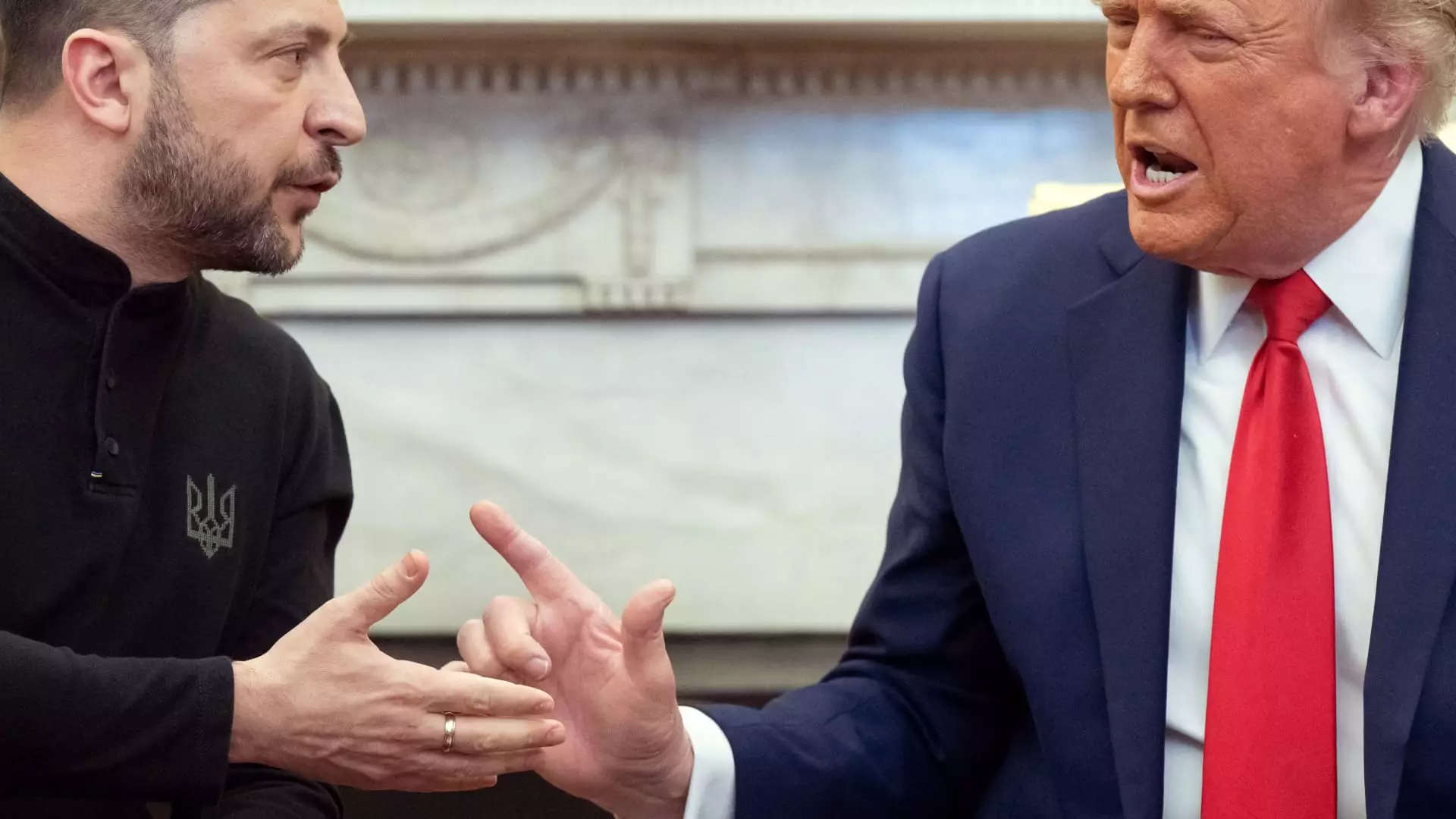The diplomatic exchange between U.S. lawmakers and Ukrainian President Volodymyr Zelenskyy illustrates the challenges inherent in international negotiations, particularly as they relate to ongoing conflict and global economic implications. Recently, Speaker of the House Mike Johnson criticized Zelenskyy for not displaying enough gratitude towards the United States during a meeting in the Oval Office. Johnson’s remarks follow a public confrontation where former President Donald Trump argued that Zelenskyy lacks the leverage needed for effective negotiation. This situation highlights a crucial intersection of foreign policy, domestic political dynamics, and the broader implications for U.S.-Ukraine relations going forward.
Johnson’s insistence that Zelenskyy should “come to his senses” and show appreciation for U.S. support underscores a recurring theme in diplomatic relations: the necessity of reciprocity. In the realm of international politics, gratitude—or a perceived lack thereof—can influence relationships and negotiations significantly. Johnson portrayed Zelenskyy’s demeanor during the Oval Office meeting as a failure to recognize the extensive support that the U.S. has provided during a tumultuous time in Ukraine’s history. He emphasized the importance of Ukraine’s attitude towards these negotiations, suggesting that a more grateful posture could pave the way for better cooperation and outcomes.
Critics, however, may argue that such expectations can overshadow the more pressing concerns of sovereignty and national security. Zelenskyy’s demands for security guarantees demonstrate Ukraine’s precarious situation and the need for assurances against aggressions from its powerful neighbor, Russia. Johnson’s call for gratitude must be weighed against the urgent realities faced by Ukraine, where the stakes extend beyond mere diplomatic niceties.
The Mineral Rights Deal: A Complex Proposition
A focal point of the discussion is the proposed mineral rights deal, which Johnson is promoting as a foundation for new economic and security strategies in the region. The argument is that this agreement could foster not only economic growth through access to rare earth minerals but also create a sense of partnership where the U.S. would participate more deeply in Ukraine’s stability. In Johnson’s view, the mineral rights deal serves as a dual benefit: enhancing U.S. interests while fortifying Ukraine’s economic security.
However, the terms of such agreements often require intricate negotiations that hinge on mutual understanding and trust. If Zelenskyy perceives the deal as lacking in adequate security provisions, his hesitancy becomes a rational response to ensure the continued safety and independence of his nation. The stakes of negotiations must be clear, and any perceived imbalance could further strain the relationship between the two nations.
In addition to the foreign policy discussions, the domestic implications of budgetary decisions are pertinent to the current landscape. Johnson expressed confidence that the proposed $2 trillion in cuts would not affect essential programs like Medicare or Medicaid, reassuring the public of the Republicans’ intentions. However, skepticism surrounding the impact of such budget reconciliations remains a point of contention.
The delicate balance between reducing national expenditures and maintaining essential social programs reflects broader societal concerns. With healthcare access being a pressing issue for many citizens, the commitment to fiscal responsibility must be navigated alongside the ethical obligation to support vulnerable populations. This situation presents a critical challenge for the House Republicans as they seek to reconcile their fiscal goals with the humanitarian needs of the public they serve.
Looking Ahead: Building Sustainable Relationships
Ultimately, the conversations surrounding Ukraine, U.S. support, and domestic fiscal responsibility reveal the intricate web of diplomatic and political realities that shape contemporary governance. The call for Zelenskyy to express gratitude, while grounded in traditional diplomatic practices, must not detract from the genuine needs of a nation under threat.
As both parties work through these negotiations, it is essential to focus on building trust and ensuring that the objectives of peace and economic stability are mutually pursued. For the U.S., this means recognizing the importance of supporting allies while also addressing domestic concerns. For Ukraine, the path forward may require tough negotiations that account for both immediate security needs and long-term partnerships. The success of these endeavors will hinge on constructive engagements that transcend mere political rhetoric.


Leave a Reply